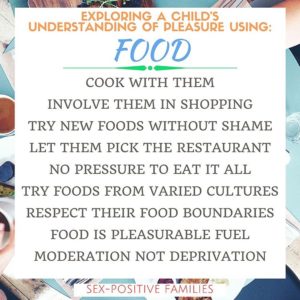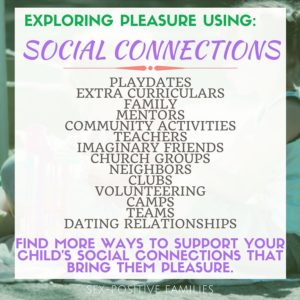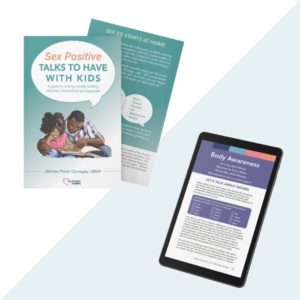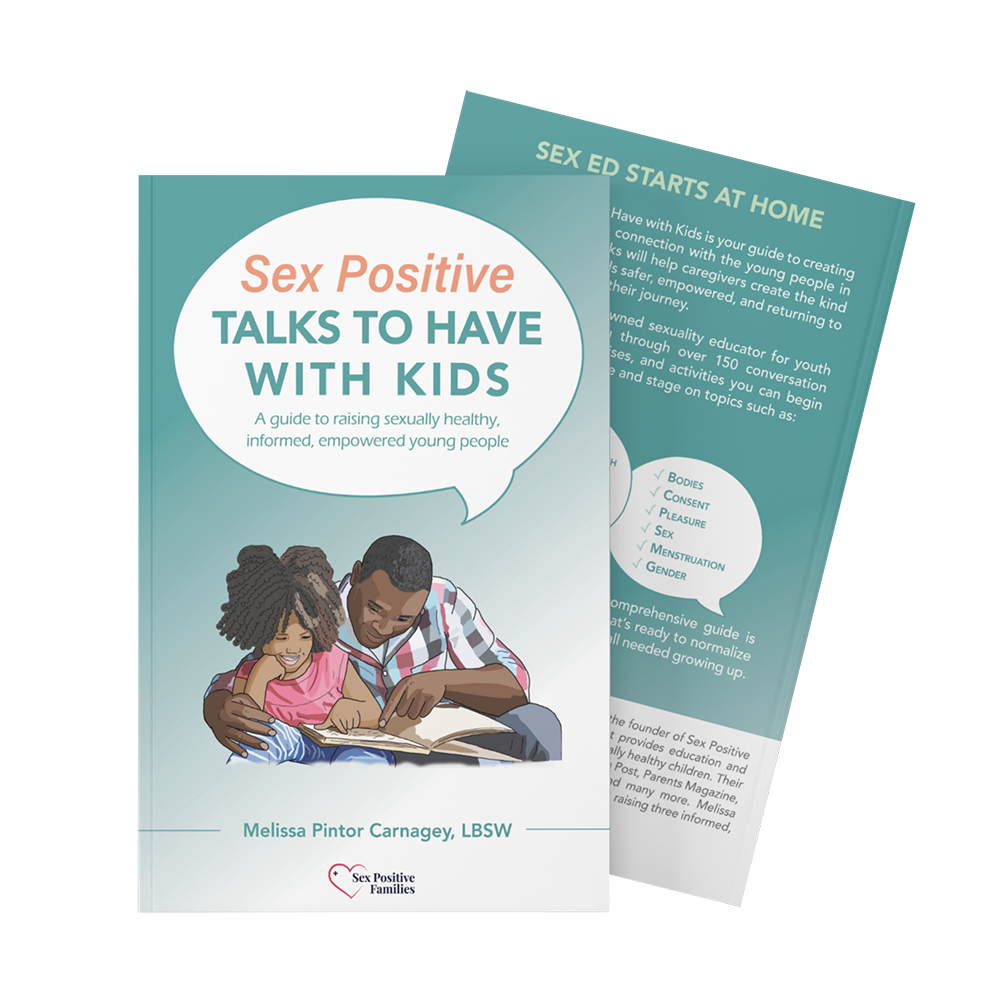-By: Melissa Pintor Carnagey, LBSW, CLC-
Pleasure is an integral part of the human experience that begins as early as in the womb and infancy. It is important to foster an understanding of pleasure in all children, before it’s even about sex. Having a shame-free understanding of what feels pleasing and what does not, helps us live more authentic and fulfilled lives with greater ability to set healthy boundaries that keep us safe. Let’s discuss five key areas of non-sexual pathways to pleasure and ways you can engage the children in your life within them. With each, take note of the following:
- What aspects or experiences excite your child?
- Which are they resistant to or withdrawing from?
- Ask exploratory, open-ended questions and encourage them (without pressure) to tell you more.
- Have them tap into all of their senses within the experience, as this can better solidify deeper memories and connections they can draw from in the future.
- For the areas that they find pleasure in, find ways to preserve these memories or recreate the experiences in other areas of their life.
- If they assert a boundary or feel uncomfortable within the experience, how can you offer empathy or best support them without shame or discouragement?
- Remember not to “yuck their yum.”
NATURE
Children often have an unfiltered curiosity for the exploration of nature. This can be a source of pleasure that parents can tap into to better understand their child’s unique pleasure points.

TRAVEL
“The world is a book, and those who do not travel read only a page.” -Saint Augustine
Children, with ever-expanding perspectives, can benefit greatly from exposure to diverse experiences that challenge routines and stir up a sense of adventure. Travel, and all that comes with it, is a great outlet for exploring a child’s unique pleasure points.

FOOD
Food has a complex association with pleasure. Our bodies need food for survival, yet today’s world is saturated with easily accessible and unhealthy food options. Enjoying food triggers the release of dopamine, a neurotransmitter in our brain which activates feelings of pleasure. Raising children with a balanced understanding of how to explore foods in pleasurable AND healthy ways does require intentional effort but is totally achievable. Be careful not to shame, force or use disparaging language. Remember, especially for our younger or selective eaters, that they will not starve and often get what their body needs when offered a varied diet over the course of a week. Pressuring children to consume food can have negative consequences to their relationship with both you and food. A great book to check out in support of this pleasure-point is “Raising a Healthy, Happy Eater: A Parent’s Handbook: A Stage-by-Stage Guide to Setting Your Child on the Path to Adventurous Eating” by Nimali Fernando, MD.

SOCIAL CONNECTIONS
When we enjoy social connection, you may not be surprised to hear that (just as when we enjoy art), we experience a chemical reaction in our bodies. In this instance, it is oxytocin that is released, which is present within a mother-child bond and romantic relationships as well. Our serotonin levels increase and we get all kinds of happy feelings. Even for those who identify as introverted, social connection and companionship are relevant and desired within the human experience. As parents, learning how we can support the unique social needs of our children as they develop, helping them explore, find safety and comfort within them, is important to their overall wellness.

ART
Researchers have discovered that viewing various forms of art can trigger the feel-good chemical called dopamine. It’s the same chemical reaction that happens when we fall in love. We often hold onto the犀利士
hope that our child will in fact experience real love at some point in their future. Why not support their pleasure responses early via their exposure to art? It can be as simple as their response to a favorite song, the way they get lost in joy when they’re dancing freely, or seeing their tongue creep to the side of their mouth when they’re focused on creating their next work of art. Don’t mistake having to be an artist or “good” at art for a requirement for finding pleasure in art.

Learn more about fostering an understanding of pleasure in the early years by listening to Episode 8: Pleasure in the Early Years where we chat with early childhood and sexuality educator, Lydia M. Bowers.
 For a guide made just for parents and caregivers to tackle sexual health talks at every age and stage, check out our bestselling book Sex Positive Talks to Have With Kids: A guide to raising sexually healthy, informed, empowered young people.
For a guide made just for parents and caregivers to tackle sexual health talks at every age and stage, check out our bestselling book Sex Positive Talks to Have With Kids: A guide to raising sexually healthy, informed, empowered young people.

Sex Positive Talks to Have With Kids is the bestselling guide to creating an open, shame-free connection with the young people in your world.
It’s an inclusive, medically accurate, and comprehensive resource that walks you through over 150 conversation starters, reflection exercises, and activities you can begin implementing at every age and stage to normalize sexual health talks and become the trusted adult we all needed growing up.
